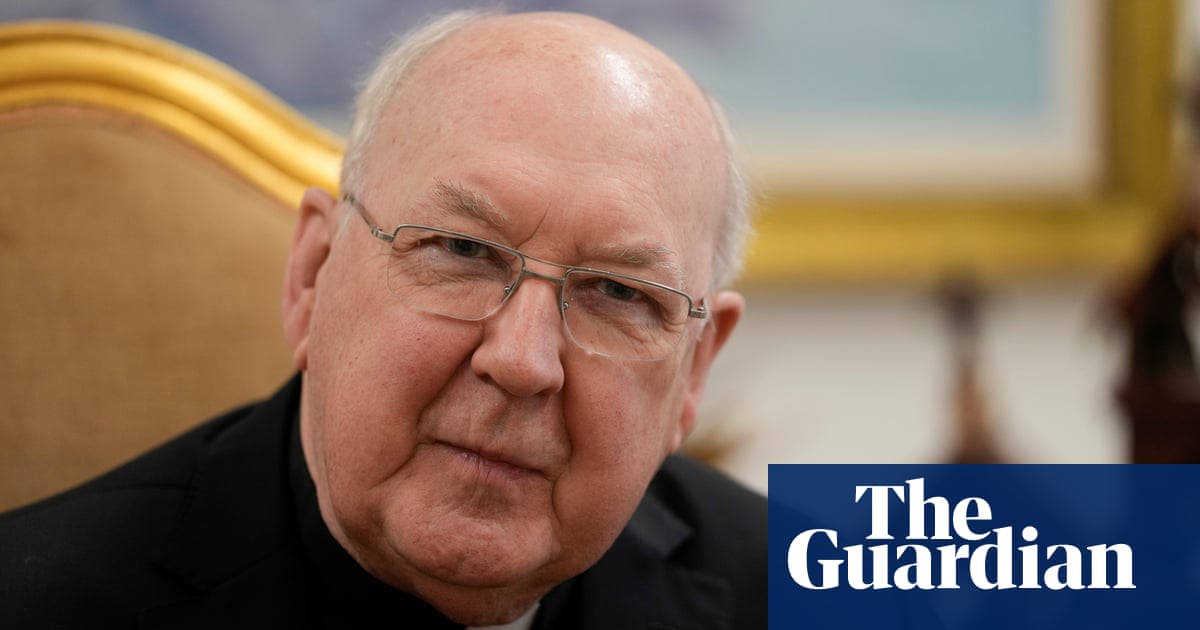The cardinal who announced the death ofPope Francisbore the ancient Vatican title of camerlengo and spoke in Italian, but there was no mistaking the Dublin accent.
Long before he rose through the ecclesiastical ranks and was entrusted with temporarily running the Holy See, Kevin Farrell was an altar boy from an Irish republican family in the working-class suburb of Drimnagh.
Or, as the British tabloidMetro put it: “Interim pope is a bloke called Kevin from Dublin.”
As camerlengo, or chamberlain, the 77-year-old Irish American officially ascertained the pope’s death and will organise the conclave that will elect a successor – with Farrell himself a longshot possibility.
The death of Francis on Monday vaulted the powerful but little known Vatican figure into the global spotlight, and prompted comparisons to the fictional cardinal played by Ralph Fiennes in thefilm Conclave. (The film made Fiennes the dean of the College of Cardinals but gave him the duties of the real-life camerlengo.)
Farrell has a reputation for personal warmth, a passion for social justice and moderation on doctrinal issues, likePope Francis. But liberals decry his stances on same-sex marriage and abortion rights, and his decision in 2018 to bar Ireland’s former president, Mary McAleese, from speaking at a Vatican conference, reportedly because of her advocacy for same-sex marriage and female priests. McAleese said she was “profoundly hurt” by the attempt to exclude her.
As a senior bureaucrat – his jobs include running the Vatican’s investments and its Dicastery for the Laity, the Family and Life, which promotes marriage – he favoured opening the church’s lay movements to younger people. “The future of the movements depends on their ability to change the heads of these movements so that we prepare younger people all the time to take leadership roles,” hetold the Jesuit magazine Americain 2022.
Farrell was born in 1947 to Edward and Molly Farrell, who worked at the Player Wills tobacco factory on South Circular Road. They instilled in their son respect for the Irish language, Ireland’s republican heritage and the Catholic church.
Young Kevin was not sporty but “very, very bright”, a childhood playmate,Alan Wheelan, told RTÉ.
Molly’s prayers that one of her four sons would become a priest were more than answered; Kevin and his older brother Brian both joined the Legionaries of Christ in the 1960s and went on to become bishops.
After studying theology at the University of Salamanca in Spain and at the Pontifical Gregorian University in Rome, Kevin served as a university chaplain in Mexico before moving to the US archdiocese of Washington in 1983. He became a US citizen, ran pastoral centres and charities, and studied business administration at the University of Notre Dame.
Farrell served underCardinal Theodore McCarrick, who was later defrocked over allegations of sexual abuse. Farrell said he had no knowledge of wrongdoing by McCarrick. “I was shocked, overwhelmed; I never heard any of this before in the six years I was there with him,” he told CNS in 2018.
In 2007 he was appointed bishop of Dallas and brought to Rome in 2016 by Pope Francis, who made the like-minded Spanish speaker a cardinal tasked withmultiple jobs.
Farrell said he accepted the role of camerlengo on condition that Pope Francis outlive him. “I jokingly said to him, ‘I will accept this job, Your Holiness, but on one condition, that you preach at my funeral!’”
The Dubliner is expected to lead a procession that moves the pope’s body from the chapel of the Domus Santa Marta to St Peter’s Basilica and to orchestrate thefuneral on Saturday, which dozens of heads of state and government are expected to attend. During the interregnum when there is no pope – thesede vacante– it is Farrell’s duty to destroy Pope Francis’s papal ring.
Theconclaveis to begin in early May and will conclude with a puff of white smoke that announces the cardinals have selected a new pontiff. Only twice has a cardinal camerlengo become pope: Gioacchino Pecci (Pope Leo XIII) in 1878 and Eugenio Pacelli (Pope Pius XII) in 1939.
